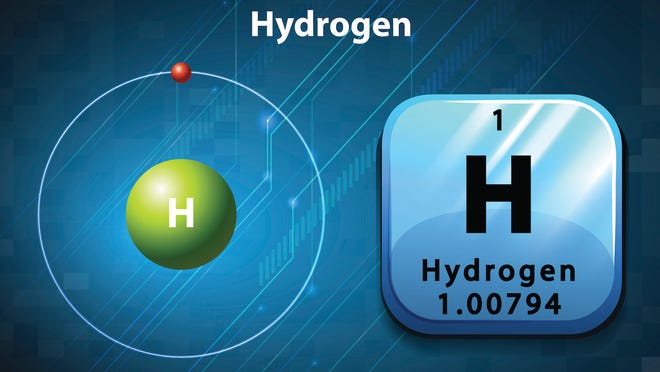NW Natural wants to produce hydrogen in Eugene and then blend it with existing natural gas in its pipelines, which the utility says would slightly reduce emissions and offer insight into the viability of blending hydrogen at larger scale.
NW Natural filed preliminary regulatory filings for the hydrogen project with the Oregon Public Utility Commission in July. The utility plans to file for approval of its Eugene hydrogen project with regulators this month.
About 2,300 residential customers, 160 commercial customers and six industrial customers in west Eugene would receive blended natural gas once the project is operational in early 2024, said Chris Kroeker, head of NW’s natural business development segment. .
NW Natural is beleaguered in Eugene, where lengthy negotiations over climate goals last year failed to yield a new franchise deal with the city. The City of Eugene is currently exploring widespread electrification options, which may include a ban on natural gas hookups in new construction as well as a campaign to electrify buildings across the city.
Eugene plans a small-scale test
Hydrogen blending is an emerging alternative to pure natural gas power that adds hydrogen, a carbon-free fuel, to existing pipelines. While it is possible to reduce system emissions while using existing infrastructure, skeptics say there are challenges, risks and inefficiencies, and they fear the projects will block more electrification strategies. effective.
Kroeker said Project Eugene is a small-scale test of what the utility hopes to achieve system-wide in the future. NW Natural has existing hydrogen blending sites in Sherwood, but Eugene would be the first test for the larger market.
“It’s not built to be a low-cost, large-scale source of low-carbon gas. It’s going to help us learn so we can pursue these larger projects in the future,” Kroeker said. . “After this project, we hope to confirm that our standard operating procedures and equipment, as well as our distribution system and downstream devices all work very well with 5% and over 10% mixtures. Once we will have understood that for this area, we plan to blend throughout our system when we can get low cost hydrogen supplies available to us.”
Project estimated at $9.8 million
NW Natural intends to purchase electricity from Eugene Water & Electric Board to operate a 1 megawatt electrolyser, which separates hydrogen and oxygen molecules from water in a process called electrolysis. Oxygen is released after the process.
NW Natural expects the $7 million to $9.8 million construction project to result in an annual system reduction of 228 metric tons of carbon dioxide equivalents, which the US Environmental Protection Agency estimates is about the same emissions that 49 gasoline cars would create in a year.
The cost of the project will be shared by all NW Natural customers, whose bills would increase by about 15 cents per month, Kroeker said. Getting the project through Oregon’s regulatory review process is expected to take six months.
According to San Francisco-based think tank Energy Innovation Policy and Technology LLC, natural gas and electric utilities have proposed at least 26 pilot projects in more than a dozen states involving hydrogen for various uses.
But the organization warned in a March report hydrogen blending should play a limited role in a carbon-free economy.
“The existing body of research suggests that mixing hydrogen and natural gas for use in buildings or for power generation is highly inefficient and does little to reduce GHG emissions,” the report said. “This could thwart more viable decarbonization pathways while increasing consumption costs, exacerbating air pollution and imposing safety risks.”
Contact journalist Adam Duvernay at [email protected]. Follow on Twitter @DuvernayOR.

